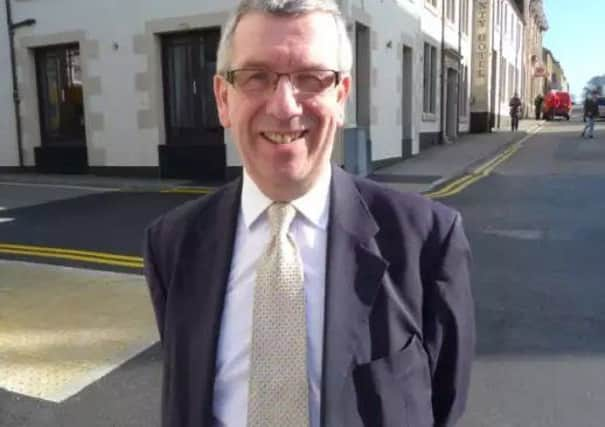Campaigning for more education of drink drivers and car ingnition breathalysers


Mr Stewart said: “ In Scotland we reduced the amount of alcohol a driver could have in their blood to address this anti-social type of behaviour in our efforts to make our roads safer.
“Road safety groups and the Police have worked tirelessly to further enhance road safety and make our carriageways safer for all road users.
Advertisement
Hide AdAdvertisement
Hide Ad“However, the drink driver and for that matter the drug driver, seem to think they are above the law and continue to be a danger to themselves and more importantly others.
“ It’s a cliché I know, but something has to give, something has to be done, but what?
“Education is key and I have suggested many times now that those convicted of drink or drug driving should undertake mandatory rehabilitation courses - Drink/Drug Driver Rehabilitation Scheme (DDRS).
“Clearly there is a need for education with regards drink and drug driving. This is where these courses come in to enhance all that is currently being done.”
Advertisement
Hide AdAdvertisement
Hide AdHe added: “The course combines presentations, group exercises, group discussions and videos used in conjunction with a course workbook with various exercises to complete and is all geared to educate the convicted driver as to the error of their ways.
“Let’s face it, if the convicted driver is not referred to such a scheme, where are they to be educated as to the danger they pose to other road users and what is to stop them continuing to drink/drug drive once their ban has been completed.”
The DDRS is an informal educational training workshop that provides participants with knowledge to reduce the likelihood they will be re-convicted of drink/drug driving again.
Mr Stewart said the incentive for the drink/drug driver is that if they complete the course they can not only get up to 25% off their driving ban, but also become more responsible and safer drivers in the process.
Advertisement
Hide AdAdvertisement
Hide AdHe continued: “I have previously written to the Government on this issue and in response I have been advised that such matters such as sentencing was a matter for the Courts.
“Another option I feel should be looked at is new cars being fitted with an ignition interlock device or breath alcohol ignition interlock device (IID or BAIID).
“This is a breathalyser for an individual’s vehicle. It requires the driver to blow into a mouthpiece on the device before starting the vehicle. If the resultant breath-alcohol concentration analysed result, is greater than the programmed blood alcohol concentration, the device prevents the engine from being started.
“The interlock device is located inside the vehicle, near the driver’s seat, and is directly connected to the engine’s ignition system.
Advertisement
Hide AdAdvertisement
Hide AdMr Stewart concluded: “Scotland has been at the forefront of road safety initiatives and has taken the lead in the UK with regards a reduced blood/alcohol level for drivers.
“Why don’t we go that step further and seriously consider the two options I have highlighted yet again?”
Josh Harris, Director of Campaign at the Road Safety charity, BRAKE said: “Drink-driving is a scourge on our roads and it was great to see Scotland take steps to address this through the reduction of the drink-drive limit in 2014.
“We want to see the government go further and improve both the deterrent and post-offence framework for drink-driving.
“Research has shown that any amount of alcohol affects safe driving and we want to see Scotland continue to lead the way in minimising drink-drive risk in the UK.”